Published
- 03:00 am

Medius, a leading provider of spend management solutions, announces the appointment of Branden Jenkins as its new Chief Strategy Officer (CSO). Jenkins will be responsible for Medius’ strategic direction and coordination with stakeholders, including Medius’ executive team, customers, and partners. Jenkins will also oversee corporate development.
Jenkins joins Medius with over 20 years of leadership in cloud-based software companies ranging from start-ups to rapidly scaling public software companies. Before joining Medius, he served as vice president of Strategy at NetSuite, an Oracle global business unit. He created and executed initiatives that drove market share accretion, increased customer engagement, and boosted overall success for NetSuite and its customers.
“Branden joining as CSO is perfect timing since we’re accelerating our growth as a leader of spend management solutions for midsized enterprises across the globe,” said Per Åkerberg, Medius CEO. “Branden brings tremendous experience in go-to-market, ecosystem development, and category design. He will be instrumental in our build-buy-partner strategies and verticalization as we accelerate across all fronts.”
“Customers are moving beyond traditional ERP and financial management software, which is riddled with burdensome processes and workflows, preferring in its place robust automated solutions such as Medius,” Jenkins said.
“Medius is perfectly positioned to own the global spend management solutions category for midsized enterprises, and I am delighted to lead the way as the new Chief Strategy Officer.”
Jenkins joins Medius during a season of accomplishments and growth. Earlier this year, Medius won the Fintech Breakthrough Award for Best Procure-to-Pay Software and was recognized as a Visionary in the Gartner Magic Quadrant. Additionally, Medius reported strong 2020 performance that included a 49% increase in new sales – despite the challenging macro environment.
Related News
- 01:00 am

Leading global AI-powered credit decision platform provider, Scienaptic AI announced that Cooperative Teachers Credit Union (CTCU) has selected its AI-powered platform, enabling the credit union to make stronger, faster credit decisions and offer enhanced financial options for its members.
Founded in 1953 by teachers, for teachers, Texas-based CTCU has grown into an inclusive community financial institution while still maintaining a passion for educators throughout East Texas. Offering a full line of financial products and services, with savings rates 54% higher than the national average, CTCU is the 121st largest credit union in the state of Texas.
“Through the years, CTCU has grown in assets, in members and in offerings,” said Tim Miller, president and CEO, Cooperative Teachers Credit Union. “We are excited to partner with Scienaptic and build upon this growth by tapping its AI-powered credit decisioning platform. Scienaptic's AI will enable us to offer enhanced credit access to our members and improve their financial well-being."
"We are pleased to partner with CTCU to provide enhanced lending decisions, and in turn, increased credit availability to its members,” said Pankaj Jain, President, Scienaptic. “By leveraging Scienaptic’s AI enhanced decision-making capabilities, CTCU is positioned to create more approvals faster and strengthen member relationships, all while delivering an exceptional customer experience without increasing risk.”
Related News
- 02:00 am
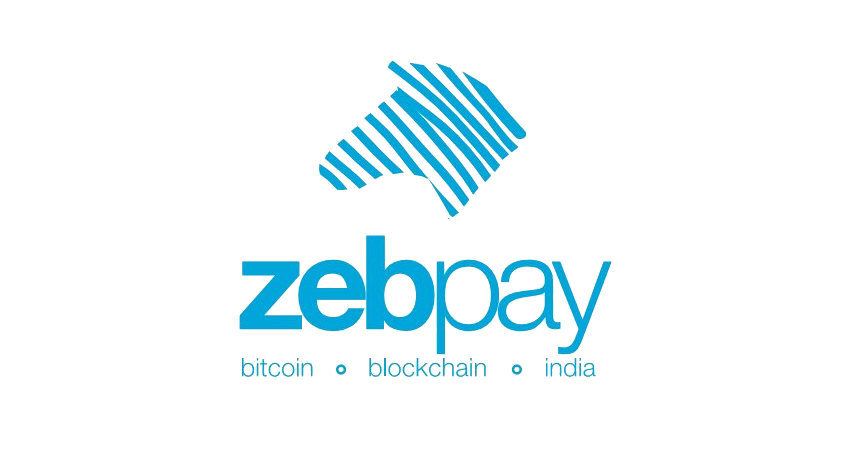
Bitcoin recently reached USD 50,000. Here are the views of Avinash Shekhar, Co-CEO, ZebPay on the development:
“The current market surge was expected by firm believers of this technology asset class after the temporary sell-off which was a short-lived FUD in the market. BTC has absorbed pretty much all the negative news over the last quarter and yet, hasn’t dampened the impact on the institutional influx of money into this technology giving out a clear message on the strong fundamental value the asset poses.
Bitcoin is fundamentally a very strong asset with a reliable foreseen future. The recent sell-off was a temporary uncertainty faced on accounts of the negative news in the market pertaining to some respective country’s stance on the mining aspect of the asset. Bitcoin has just picked the growth path to its base of strong fundamentals again where all types of investors from retail to institutions have shown immense interest and vision.
We recommend Rupee-Cost-Average (RCA) into crypto assets as a long-term investment strategy. Using RCA, investors can get an average entry price for the asset and get better returns in the long run. SIPs is one way to do this and we have launched a new product, ZEBB to promote this long-term investment strategy. Anyone can start a SIP in Bitcoin or Ether on ZEBB starting with just Rs. 100.”
Related News
- 04:00 am
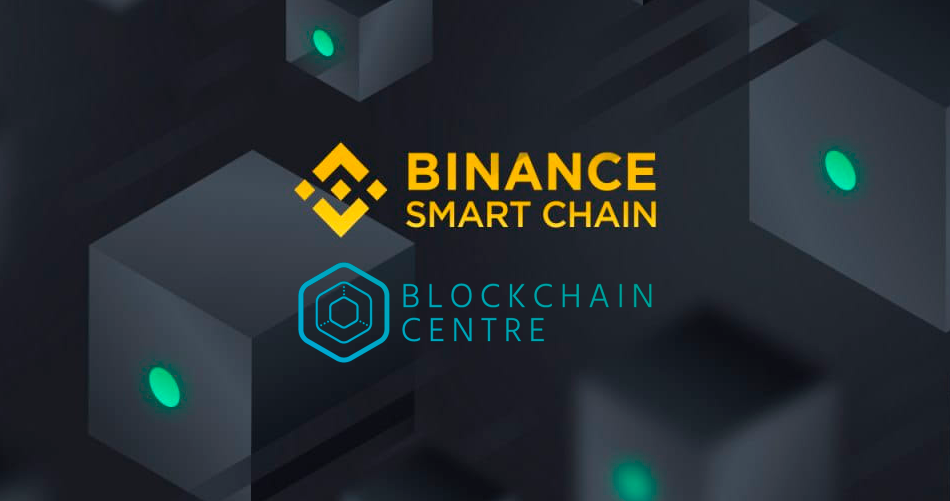
Blockchain Centre, a network-based organization that assists companies and products in entering the blockchain space, has announced a strategic partnership with the Binance Smart Chain (BSC).
The primary objective of this partnership is to increase meaningful blockchain adoption and help companies develop more competent products for the blockchain space. The two organizations hope to achieve faster and smoother integration of newcomers and ensure full-scale infrastructure support for companies and products entering the crypto space.
Binance Smart Chain, an Ethereum Virtual Machine-compatible Blockchain has seen tremendous growth since its inception. Through meaningful partnerships, more projects and developers are choosing to build their applications using the BSC ecosystem. Blockchain Centre will now have access to the institutional-quality infrastructure support that BSC can offer.
As part of the collaboration, Binance Smart Chain (BSC) will provide their expertise to companies and products that are part of the Blockchain Centre network. Key advisory areas being product management, market positioning and the fundamentals of developing for blockchain.
Tadas Maurukas, the CEO and co-founder of Blockchain Centre, expressed his opinion by saying:
"Binance Smart Chain is one of the most sought-after and influential partners in the crypto space. By working together, we will reduce the barrier of entry into the crypto space for new and existing companies by quite a significant margin. Naturally, we are incredibly excited to offer world-class consulting and connections to our network, and we hope to bring more creators, dApp developers, influencers, products, and investors around the world to the blockchain digital space."
Following this partnership, the existing network of Blockchain Centre can now leverage what Binance Chain has to offer. Key features being: smart contract support and cross-chain interoperability. Most importantly, a growing ecosystem of millions of users across Binance.com and Binance DEX, and access to collaborate with the network of knowledgeable crypto projects already working with Binance Smart Chain (BSC).
Related News
- 02:00 am
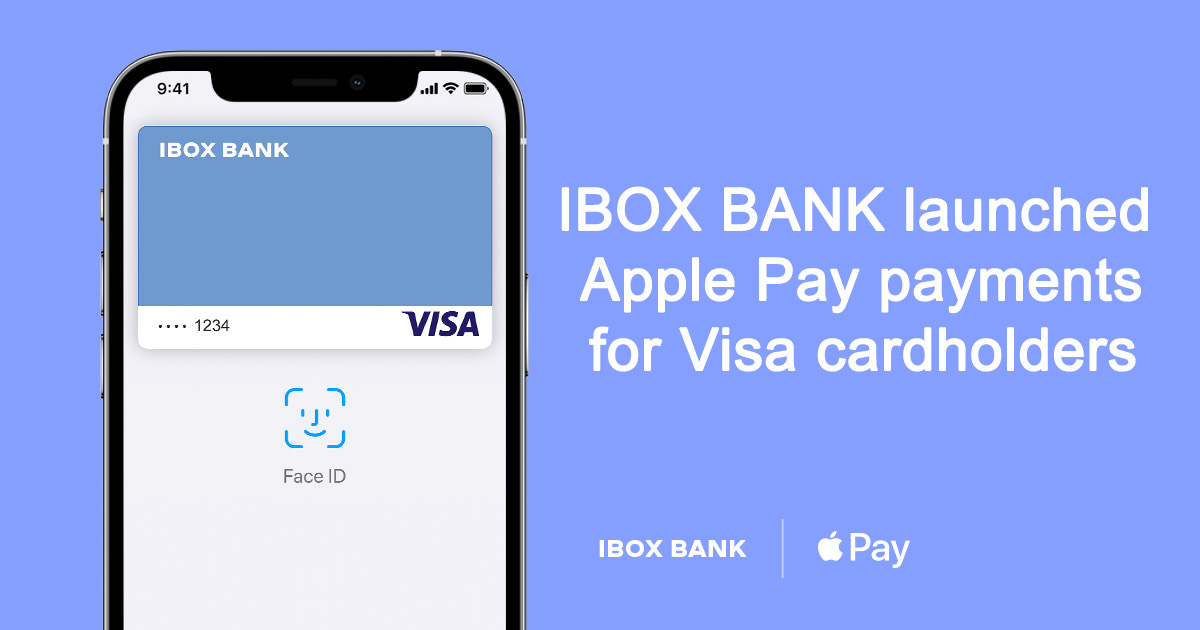
IBOX BANK transactional bank announces the launch of Apple Pay contactless payments for customers using Visa cards.
The official launch of Apple Pay payments has been prepared since the beginning of the year and included a long period of routine testing. Now all customers of IBOX BANK can use Apple Pay through POS terminals in retail outlets, and on websites and applications with one-click payment.
"The launch of Apple Pay is a very important milestone in our roadmap of innovations that we are currently implementing. It is worth noting that all iPhone owners expect that they can easily pay for goods and services with their gadgets virtually everywhere. It is worth noting that our card products have reached a decent competitive level," said Dmitry Yakovlev, the Innovation Architect at IBOX BANK.
You can add a card to Apple Pay via the Wallet app on your iPhone, as well as in the IBOX BANK mobile application. The first release of this app is planned for September 2021. After successful tokenization, your card will be available for payments.
"Apple Pay is one of the payment solutions, which became an integral part of modern banking services. We are very grateful to our partners from the Visa international payment system for their active assistance and support at every stage of the process. Thanks to this release, we can confidently launch new card products based on IBOX BANK," said the Deputy Head of the Department of Innovative Products at IBOX BANK, Yuta Romanchenko.
We would like to remind our readers that last week IBOX BANK became of the Top-5 Ukrainian banks in terms of the growth of funds of legal entities during the first six months of 2021. In July 2021, IBOX BANK increased its authorized capital from 200 to 281 million UAH, and also launched its first payment card Veocard in Ukraine. It became the first payment card in the non-bank market that was launched together with Moneyveo.
Related News
- 08:00 am

Over the years, cyber attacks and data breaches became one of the biggest risks in the business sector, compromising sensitive data and causing a massive financial hit to companies and organizations worldwide.
According to data presented by Buy Shares, more than 40% of companies feel threatened by cyber incidents and find it the most concerning business risk in 2021.
Business Interruption, Pandemic and Cyber Incidents Top Three Risks for Businesses
The global concern about cybercrime, IT failure, and data breaches has been on the rise for years. Before the pandemic, cyber incidents were the number one business risk globally, causing companies across the globe to spend billions on cybersecurity products and services.
Although cyber incidents are still one of the top three concerns for companies and organizations, the COVID-19 did affect the ranking of the biggest risks in the business sector.
According to the Allianz Risk Barometer survey, business interruption tops the charts as the leading business risk in 2021. Statistics show this risk has been in the number-one spot seven times over the last decade. However, the pandemic has made awareness of business interruption even stronger. That doesn’t surprise considering that 94% of surveyed companies reported a COVID-19 related supply chain disruption last year.
The pandemic outbreak has climbed 15 spots to become the second-most significant business risk, with 40% of companies worrying about this kind of uncertainty.
Cyber incidents ranked as the third-largest business risk globally, primarily due to the pandemic-fuelled rush towards digitalization. According to the survey, businesses all over the world recognize cybercrime as a more significant problem than loss of reputation, macroeconomic developments and political risks.
Market developments, including market volatility or fluctuation, intensified competition, new entrants, and mergers and acquisitions, ranked as the fourth-largest risk in the business sector this year, with a 19% share among respondents.
Changes in legislation and regulation, like trade wars and tariffs, economic sanctions, Brexit, and Euro-zone disintegration, close the top five list with also a 19% share, respectively.
Global Spending on Cybersecurity Products and Services to Hit $131.8B in 2021
Companies and organizations worldwide are losing billions due to cybercrime each year. Although most of them significantly increased their cybersecurity budgets, data breaches, phishing, ransomware attacks, or cyber espionage are still a huge threat to their operations.
Last year, consumers, businesses, and organizations worldwide spent over $120bn on cybersecurity products and services, $8bn more than before the pandemic struck. The Statista survey showed this figure is expected to grow by 10% YoY to $131.8bn in 2021.
Cybersecurity services, like data risk analysis, data masking, and vulnerability discovery, are the largest and the fastest-growing sector of the entire market expected to reach a $61.4bn value this year.
Cybersecurity software and hardware follow with $44.3bn and $26bn in revenue, respectively. By 2025, the global cybersecurity revenues are forecast to touch $210bn.
Related News
- 06:00 am
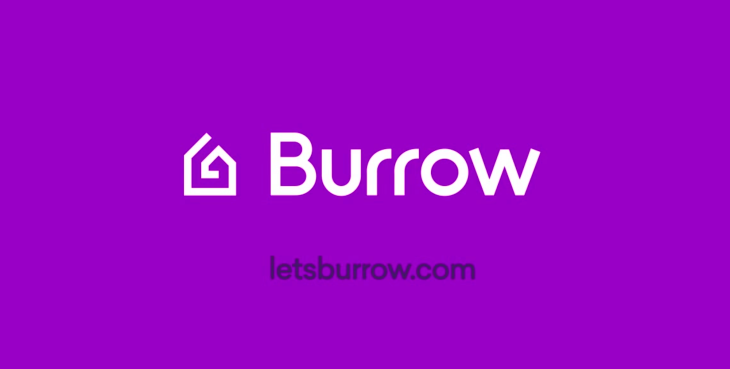
Burrow – a DPR Group business – has added e-signature functionality for advisers, as part of its API-led Client Portal Module. This follows the launch of the Digital Mortgage Platform earlier this year.
The current application process for many homebuyers continues to be heavily paper-based and cumbersome. The e-signature feature, which allows documents to be signed electronically from anywhere in the world, benefits both brokers and customers by improving accessibility, alleviating unnecessary delays to the application process and reducing adviser’s reliance on paper-based processes.
The e-signature function uses geo-location data and time stamps to authenticate the identity of the individual signing the document and provides a safe and secure way to sign documents electronically.
The new functionality also facilitates regulatory document acknowledgement through digital read receipts, particularly for documents such as Initial Disclosure Documents and Key Facts Illustrations.
e-signature is one of many functionalities that Burrow is building into its Digital Mortgage Platform. The Burrow solution is designed to help increase customer engagement between brokers and customers, while streamlining the application processes and providing brokers with cost-efficient tools. Some of the features included within Burrow are:
- In-depth digital Fact Find
- Document upload and e-signatures
- Real-time status updates
- Secure messaging
- Credit reports
- Appointment management
Pradeep Raman, Founder of Burrow, comments:
“Often application processes are delayed by complications in administrative procedures like signing documents. Such obstacles may include an individual with limited access to a printer or being unable to meet an agreed time and date for an appointment – both end up wasting the adviser and the customer’s time.
“E-signatures overcome these barriers and make the application process fast and easy. Following on from the pandemic, people are ready to embrace technology and use it to improve the overall mortgage process.”
Related News
- 09:00 am

The mobile wallets industry continues booming, with more people than ever choosing mobile payment services as a safer and more convenient way of managing money.
According to data presented by Block Arabia, the transaction value in the mobile POS payments segment is expected to hit $2.48trn in 2021, a massive $481bn increase in a year.
Global Mobile Wallets Industry to Continue Growing by 20% YoY, European Market to Surge by 67% by 2023
The global shift towards a cashless society created a huge space for mobile wallets. Over the last few years, they became very popular among tech-savvy consumers in developed countries. They also provided access to electronic transactions for hundreds of millions of people in underbanked markets.
However, as people started questioning the safety of using banknotes amid the COVID-19 pandemic, the entire sector witnessed unprecedented growth. The Statista survey showed the transaction value in the mobile POS payments segment surged by 67% last year, rising from $1.19trn to over $2trn.
In 2021, the entire market is expected to grow by another 24% and hit nearly $2.5trn value. Furthermore, statistics show that mobile wallet payments are forecast to continue rising by an average of 20% YoY in the following years and hit $3.51trn by 2023.
Although the mobile wallets market is generally dominated by Asian countries, spearheaded by China as the global leader, other regions are expected to witness much bigger growth. By 2023, the Asian mobile wallets market will grow by 29% and hit a $1.91trn value, up from $1.47trn this year.
As the second-largest region, North America is expected to witness a 50% growth in this period, with the transaction value jumping from $503.2bn in 2021 to $758.6bn in 2023.
However, Europe, with the United Kingdom as the leading market, is set to witness even more impressive market growth. Statistics show mobile payments in the European countries are forecast to surge by 67% to $590.4bn in 2023, compared to $352.9bn in 2021.
More than 1.7 Billion People to Use Mobile Wallets by 2023, Penetration rate to Hit 22.3%
The Statista survey showed the number of people using mobile wallets to make payments also surged since the pandemic hit and is expected to continue growing strongly in the following years.
In 2021, the number of users in the mobile POS payments segment is forecast to reach 1.48 billion, with a 19.7% penetration rate on a global level. Nearly two-thirds of mobile wallet users, or 1.1 billion, are from Asian countries. Europe and North America follow with 135.5 billion and 80.1 billion users, respectively.
Statistics show that the number of users will jump over 1.7 billion in the next two years, with the penetration rate rising to 22.3%. Again, most of them are expected to come from Asian countries, or around 1.24 billion, with an impressive 27.6% penetration rate.
The European and North American markets are forecast to reach 161 million and 98.7 million users by 2023, respectively.
Related News
- 07:00 am

Mastercard and NatWest Group today announced a further expansion of their partnership bringing faster, secure online payments with Pay by Bank app (PbBa) to its mobile banking app users across the NatWest Group brands: NatWest, Royal Bank of Scotland, Ulster Bank and Coutts.
The next revolution in online payments, PbBa is a new, easy-to-use payment method that lets people pay online, quickly and securely, from their banking app. It removes the need for the user to create additional accounts, logins or passwords as it is powered by the same security measures and technology as the linked banking app.
To make online payments, from a smartphone or desktop, the user simply clicks the PbBa button at checkout, which directs them to their existing banking app to complete the payment, without needing to input any payment or personal detail.
As well as benefiting from the security and convenience of the user’s banking app, payments are also leveraging fast Automated Clearing House (ACH) technology to process & settle in near real-time, giving the user instant insights & updates about their bank balance before and after each transaction.
Users can use PbBa with more than one banking app, giving the customer more choice when making online payments as well as letting them set a default account for payments. In addition, Mastercard is currently building Pay by Bank’s account on file functionality, which will enable one-click and deferred payments as well as the ability to pay for subscriptions.
Free to use PbBa will be made available for all NatWest mobile banking customers by the end of next year, as it becomes the latest major high street bank to join the eco-system making it available to almost half of all UK mobile banking users.
Salim Secretary, Head of Payment Schemes and Partnerships, NatWest Group: “At NatWest we are committed to offering our customers a choice of ways to pay that best suit their individual needs. We are pleased to be expanding our relationship with Mastercard to offer Pay by Bank app as another option for our customers to pay – offering additional choice and convenience.”
Suren Nawalkar, Senior Vice President, Consumer Applications at Mastercard said: “Pay by Bank app is the next evolution in online payments and this partnership with NatWest will make it available to even more people across the UK.
“Pay by Bank app not only makes online shopping easier and more secure, but the real-time payments and account balance updates give users greater oversight of their finances – something increasingly important during the current economic climate. Its integration with existing banking apps also removes friction for shoppers when having to download additional apps or enter new login details.”
Related News
- 09:00 am
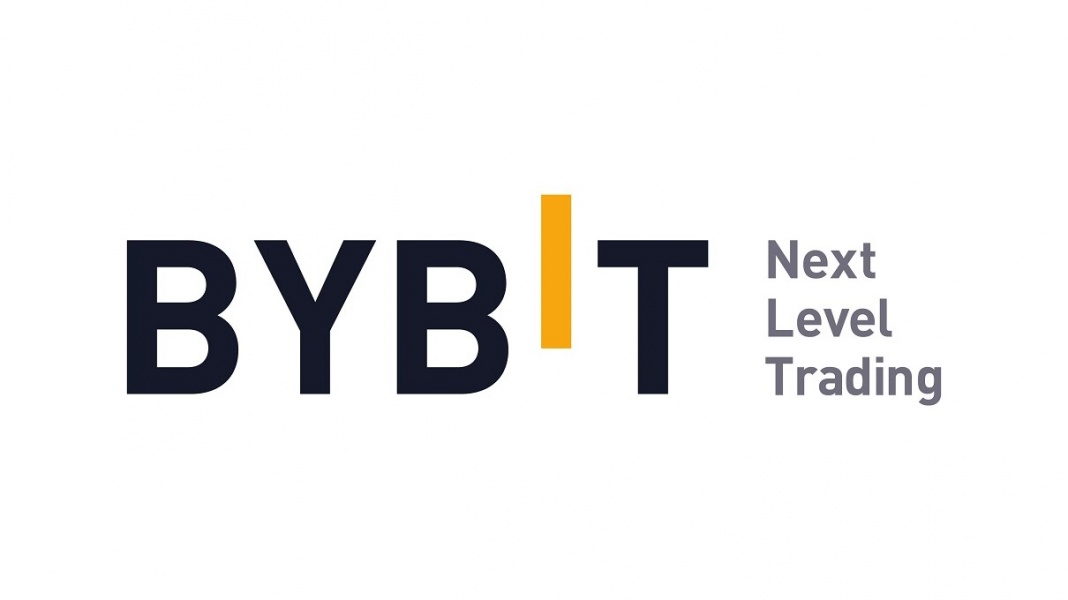
- Nordic outfits Astralis and Alliance new additions to Bybit's expanding esports family
- Bybit announced three landmark esports deals in a week
- Top gaming athletes to compete in crypto trading event of the year WSOT 2021
Cryptocurrency exchange Bybit signs on two additional professional gaming organizations today on an esports sponsorship spree. Joining Bybit's esports universe today are Astralis, global frontrunners and Denmark's national treasure in esports, and independent player-owned organization Alliance, hailing from Sweden.
The partnerships mark the second and third instalments of Bybit's global esports offensive, following its newly gained status as the exclusive cryptocurrency platform partner of NAVI ("Natus Vincere") on Aug. 18. The deals deepen the bond between two fastest-growing communities of shared demographics.
Combining Astralis' uncontested popularity and dominating Counter-Strike team, and Alliance's decade of experience and the sponsorship deals elevate Bybit's presence to over 11.3 million global fans and followers of professional tournament teams and serial winners of world titles in esports.
The scope of the partnerships will go beyond branding rights on jerseys, twitch.tv screens, and digital channels. Bybit will take an active part in planning player engagements, carbon neutrality initiatives, inclusive financial education, and various awareness campaigns on campus over the next few seasons. There are also whispers of collaborative sessions between the esports superstars.
WSOT 2021: Esports Pros, Meet Crypto Lovers
"Bybit is in it for the long run", said Ben Zhou, co-founder and CEO of Bybit and an esports fan himself, of the multi-year deals.
"Much like esports, cryptocurrency is a fast-growing segment and it can be highly competitive. Success in either field requires skills, focus and the right state of mind. And there's a special connection between both communities, where real fans champion sportsmanship, respect and fairness, and the pros compete to bring out the best in each other," he added.
Bybit says the partnership will be up close and personal. Talent from both Astralis and Alliance will be leading troops in Bybit's annual gamified crypto trading competition, the World Series of Trading (WSOT) 2021.
Fans will find out whether the esports extraordinaires' crypto trading strategies are as respectable as their gaming performance. Troops and solo players will compete for a prize pool of up to $7.5 million in WSOT 2021, almost five times of last year's total prize sum.
"We are off to a good start with the creative energy and friendly rivalry among the esports organizations. I feel that WSOT 2021 is the perfect place in time to invite esports creators and fans to join the world of the future of finance. Attractive prize money and NFT prizes are up for grabs in WSOT 2021, but for each participant it's about creating an experience on a level playing field. May the best players win," said Zhou.
The esports organisations will reveal the captains of their respective WSOT 2021 troops on social media. Fans can also search for the teams on the WSOT event website (bybit.com/wsot2021).
Reinventing itself from a crypto derivatives market leader, Bybit's growth trajectory to a fully fledged exchange platform for all crypto lovers started from 2018. Bybit now offers a full-stack of products and services from spot trading to a wide range of contracts including cloud mining. The Bybit brand is now one of the biggest names in crypto trading with more than 2.5 million registered users from over 200 markets, supported by 24/7 multilingual customer service teams across geographies.
Championing Healthy Competition
Jakob Lund Kristensen, co-founder and CRO of Astralis said the collaboration is all about positivity.
"This is a significant deal for Astralis on all levels. At the same time, the purpose of the agreement and activation around it is almost a perfect match with ours: to champion the positives of gaming, said the Astralis co-founder and CRO.
"Both companies are pioneers in their field, striving to make a positive impact as organizations, as individuals and via the ongoing global digitalization. Under this agreement, this will be done through initiatives and campaigns centered around education and charitable work supporting and promoting a more sustainable agenda in the tech and gaming world.
"The three-year deal will place Bybit's logo on the official players' jerseys of our Counter-Strike team as well as digitally on relevant platforms and social media channels. The deal also gives us room to focus even more on the ongoing work to develop our teams, brand and business," said Kristensen.
Jonathan Berg, co-founder and CEO of Alliance said:
"Today I'm extremely pleased and excited to announce our two-year partnership with Bybit.
"I've been a crypto and blockchain enthusiast for many years now, and from the start I had a strong belief that there would be a time when our two worlds would mesh. Today many of us have used crypto or do use crypto for a variety of services and I'm excited to see what the future holds for us.
"Crypto just as well as esports is still a young industry, but we both come from the same place, the passion and zeal to change the world and challenge what is taken for granted.
"It's been a pleasure to get to know the people over at Bybit, and what's made me personally excited for this deal is that not only are we both at the forefront of our respective industries but we also have a drive to be a positive impact on the world we operate in. Throughout this partnership Alliance and Bybit will do initiatives and run campaigns focused on sustainability, education and charity.
"You will find the Bybit logo on Alliance jerseys going into TI10 in October where they are competing for the $40 million dollar prize pool," said Berg.
Bybit says the future of the partnerships will be guided by the esports and crypto communities' shared passion for the thrill of competition and their drive for next-level performance.
"We are really excited to partner with two powerhouses like Astralis and Alliance, and look forward to many exciting initiatives and activations in the months and years to come. We play to win, and we are here to stay," said Zhou.









